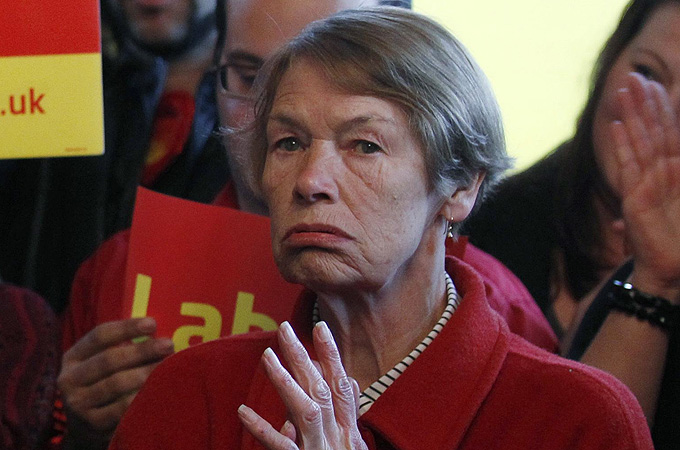Britain’s Cameron leads Thatcher tributes
Oscar-winning actress among dissenting voices in parliament session to remember prime minister who transformed country.

Britain’s Prime Minister David Cameron has led tributes to Margaret Thatcher in which he remembered a divisive and combative leader who transformed the country.
Cameron said during an emotionally charged special session of parliament on Wednesday that his fellow Conservative set a political course still followed today, but dissenting members of parliament criticised her for “making greed a virtue”.
Keep reading
list of 4 items‘Children of the Ganges’ — The boatmen of India’s Varanasi
US senators call on Biden to sanction Sudan’s RSF over human rights abuses
Israeli attack kills 10, mostly children, in Gaza’s Rafah
“She drew the lines on a political map that we here are still navigating today,” he said.
“She made the political weather, she made history and let this be her epitaph: she made our country great again.”
Politicians remained bitterly split over Thatcher during the session, scheduled to last for up to seven hours, as they traded anecdotes about Britain’s longest-continuously serving 20th century prime minister, who died at age 87 on Monday from a stroke.
Labour dissenters
Some Labour members of parliament refused to attend as Ed Miliband, opposition Labour leader, described Thatcher as a unique and towering figure who defined her age.
Glenda Jackson, Oscar-winning actress turned Labour politician, said that Thatcher was the first prime minister “deputed by female gender, OK, but a woman? Not on my terms”.
She said Thatcher was no longer prime minister when she first became a member of parliament in 1992, “but Thatcherism was still wreaking as it had wreaked for the previous decade … the most heinous, social, economic and spiritual damage upon this country, upon my constituency and my constituents.”
 |
| Glenda Jackson led the attack on Thatcher’s political legacy during the special parliament session on Wednesday [Getty Images] |
Her comments were greeted with jeers from conservative MPs.
Scottish and Irish nationalist legislators also spoke of deep wounds that had not healed caused by Thatcherism.
It was the first time parliament had been recalled from holiday for the death of a public figure since Queen Elizabeth II’s
mother died in 2002, underlining the enduring legacy of a leader who won three elections, serving from 1979 to 1990.
Plans for Thatcher’s funeral next Wednesday have turned into a security headache and a national talking point as the former Conservative leader divided Britain in death as she did in life.
Parties in several cities to celebrate her death ended in arrests and media reported police might pre-emptively arrest some protesters before they travelled to her funeral.
Codenamed Operation True Blue, the ceremonial funeral with military honours will begin with a procession through central London to a service at St Paul’s Cathedral.
In a break with protocol, the Queen and her husband, Prince Philip, will attend.
The last time the monarch attended a prime minister’s funeral was when Winston Churchill died in 1965.